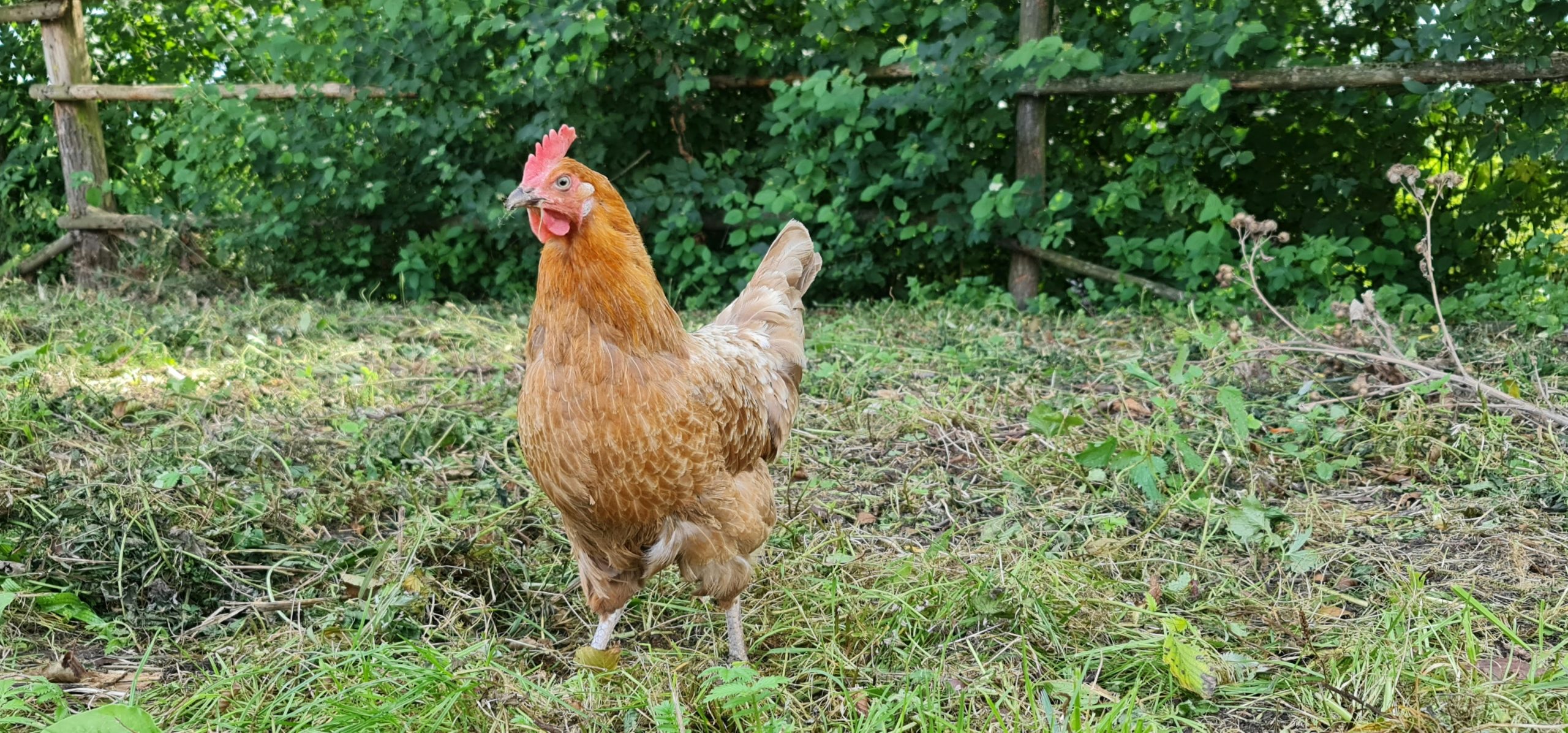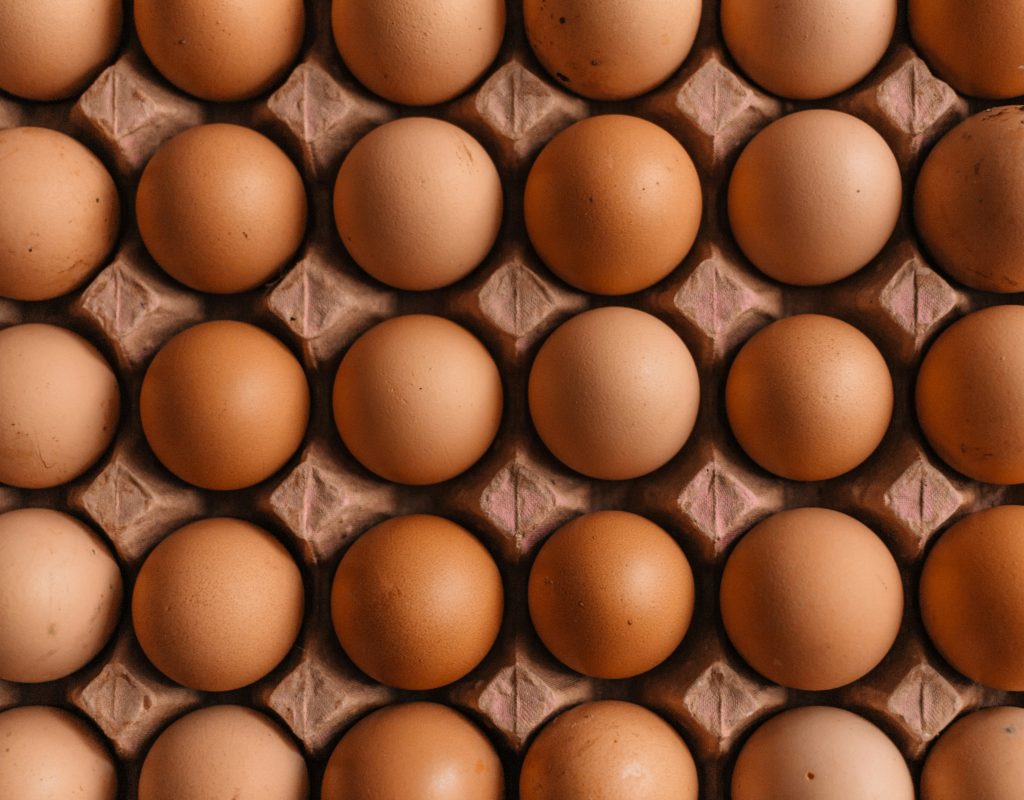
Free range hens, organic eggs, bio land
About
Ygea Eggs prides itself on offering organic, free-range eggs. Their family-run bio farm nestled in the fertile foothills of central Cyprus provides ample open space, sunshine, and fresh air for their hens. The farm also ensures the hens are fed an excellent, fully-certified organic diet. The commitment extends to supporting local farming, promoting organic foods, advocating for humane treatment of animals, and conserving nature. From their perspective, this approach fosters a healthier balance between nature and food production. They were able to start their business with an EU fund. They believe in a sustainable way to farm their name stands for land & healthy and that’s their core value.
Sustainable Development
Firstly, they pay a lot of attention to their land, they are using a concept called circular farming which is a form of permaculture. They do this to keep nature alive, through creating a way/structure in their land, a natural way of watering, and the trees will help each other out. This way the land needs minimal watering. Their main product us egg production. They produce around 4,500 eggs a day. They are constantly trying to find and explore new sustainable ways an example of this is through feeding the chickens season fruit (eg. in summertime where there is a lot of prickle pears on their land, they feed them to their chickens), they believe that this way not only are you using products that naturally grow in your land but you also keep your chickens healthier by diversifying their diet and using the different nutritional values of natural products. However, having a sustainable egg production business is not easy. If you are not sure that you can sell your eggs you can go bankrupt. You need to be certain of the market you are entering, also in regards to the EU fund they started with you only get the full funding if you are able to make it through the first five years, which are really challenging years.
Sustainability Impact
Sustainability is really important for the company. In order to succeed you need to take care of the land first. Meaning that you need to take care of the bee population in your land, to stimulate the natural growth of herbs and vegetation. This also brings more birds (such as owls) to the land which in turn help in controlling animals like rats and certain insects but also help in the growth of plants that are close to extinction.

SDGs goals and Sustainable development strategy
Goal 2. Zero Hunger: Promote sustainable agriculture through ethical beekeeping. Also honey never goes bad so they also educate people to understand that honey never goes bad even if it changes forms (eg. If it crystalizes it does not mean its bad, it is due to the weather – it is colder). Additionally, they hold workshops on collecting herbs. They believe that nature can offer more than we think, for example they teach which herbs can be found in your own back yard that are not only edible but also nutritious. Lastly, they also deal with a lot of kids that have nutritional difficulties but really like honey.
Goal 2. Zero Hunger: The first eggs that the chickens produce are usually too small to sell so we donate them to different foundations (eg. Rehab facilities, to economically disadvantaged families etc.)
Goal 3. Good Health and Well-Being: It is important to be aware of what we put in our body which is what we try to promote with our organic eggs.
Goal 6. Clean Water and Sanitation: This is really important especially for a place like Cyprus which struggles with water. A way that we do this is through using the concept of permaculture on our land.
Goal 11. Sustainable Cities and Communities: This is something we encourage by having free-range chickens and working on our land and the natural vegetations and also giving a home to make wild animals in the area. We need to try to encourage a natural way of life as much as possible.
Goal 12. Responsible Consumption and Production: We produce biological eggs using no pesticides, synthetic fertilizers or toxic chemicals, which are bad for our health and the environment. We also Avoid synthetic hormones (which are frequently given to conventional dairy and meat animals to alter reproductive cycles and speed up growth) means less stress for animals and reduced human exposure to endocrine-disrupting chemicals. Lastly our animal feed produced exclusively from vegetative (pure plant) raw materials, non genetically modified.
Strategy & Mission
The organization does not have a written strategy. Their mission and vision are definitely related to sustainability. Sustainability is part of their core belief system their vision is to turn the whole area of the farm into a green area, a natural forest. They believe in nutritional vs pharmaceutical lifestyle. They earth and land can provide us with a lot of benefits and we should try to get closer to that.
Innovative approaches &Challenges
Some of the innovative approaches to meet sustainable goals was to invest in creating their farm in line with permaculture which eventually will also limit their irrigation water use. They also believe in natural medicine and to getting closer to our ancestral practices closer to nature. In addition, they feed their chickens seasonal fruits and produce which is naturally grown in their land, believing that diversifying their diet keeps them healthier and happier.